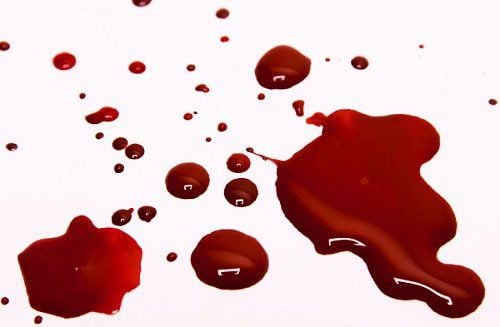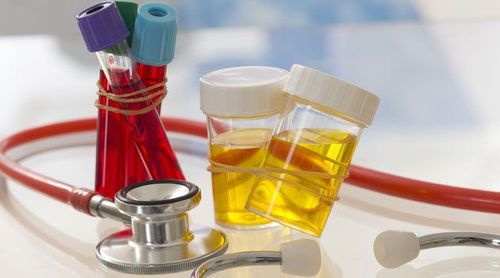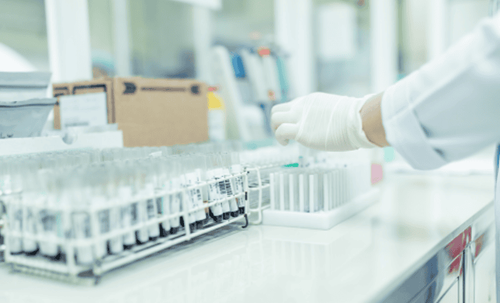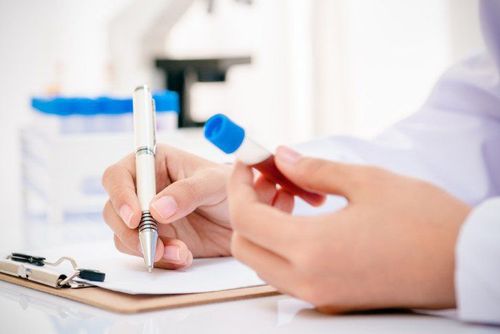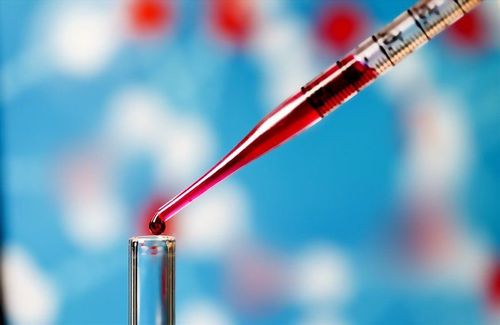Blood creatinine test helps to assess the patient's health situation. When receiving the results, many people do not know what low Creatinine indicates, related to what disease? The following article will help answer the creatinine level and the diseases that the patient may have when the creatinine is too low or too high.
1. What is Creatinine?
Creatinine is a waste product that is excreted by the kidneys. Creatinine originates from creatine synthesized in the liver, then phosphorylated in the liver to form creatine phosphate, which is then transported by the blood to be stored in the muscles for use in muscle contraction. The breakdown of creatine phosphate produces Creatinine. Since Creatinine is excreted by the kidneys, it accurately reflects the filtering function of the kidneys.
Because the body produces Creatinine at a stable rate, the Creatinine level can be checked through routine blood tests. Since chronic kidney disease has very few warning signs, measuring Creatinine levels is very important, helping to determine the glomerular filtration rate - an index that helps assess the overall function of the kidneys. Quantifying the Creatinine index also reflects diseases related to the kidneys and some other diseases.
2. Overview of Creatinine Tests
2.1 Tests to be Performed
Serum Creatinine Level: The result obtained indicates how well the kidneys are functioning.
Creatinine Clearance: Measures the amount of creatinine removed from the blood by the kidneys. This test provides more information about kidney function than the serum creatinine test. This test is performed on both a blood sample and a 24-hour urine collection.
Blood Urea Nitrogen (BUN) to Creatinine Ratio: The BUN test measures the amount of urea in the blood. The levels of creatinine in the blood and blood urea nitrogen (BUN) are used to find the BUN to creatinine ratio. This ratio helps doctors check for problems (such as dehydration) that cause abnormal BUN and creatinine levels.
2.2 Indications for Testing
These tests are performed to:
- Assess kidney function.
- Evaluate kidney disease.
- Assess kidney function in people taking medications that can damage the kidneys.
- Check for severe dehydration.
2.3 Preparation and Test Procedure
Test Preparation:
- Avoid strenuous exercise for 48 hours before the test.
- Do not consume more than 225g of meat, especially beef or other protein, in the 24 hours before the test.
- Drink plenty of water during the 24-hour urine collection (do not drink coffee or tea).
Perform the following tests:
- Blood sample collection: A healthcare professional will wrap an elastic band around the patient's upper arm to restrict blood flow. This causes the veins below to become larger, making it easier to insert the needle into a vein. The puncture site is then cleaned with alcohol, and a needle is inserted into the vein. A tube is attached to the needle to collect the blood. The band is removed from the arm once enough blood has been collected, and a gauze pad or cotton ball is placed over the puncture site when the needle is removed. Finally, gentle pressure is applied to the puncture site, and a bandage is applied.
- 24-hour urine collection: Start collecting urine in the morning upon waking up. Note the time and mark the beginning of the 24-hour urine collection. For the next 24 hours, collect all urine in a clean container. The laboratory usually provides a large container with a capacity of about 4 liters. Urinate into a small, clean container and then pour the urine into the large container. Avoid touching the inside of the container. Keep the container refrigerated for the entire 24 hours. Collect the last urine sample before the 24-hour period ends, pour it into the large container, and note the time.
2.4 Read the results for Creatinine, Creatinine Clearance, and BUN.
- Normal creatinine levels are: 53-106 mmol/L in males; 44-97 mmol/L in females.
- Normal creatinine clearance is: 107-139 mL/min in males; 87-107 mL/min in females.
- The BUN to creatinine ratio in adults is 6-25 (ideal value is 15.5).
3. What does a low Creatinine level suggest?
A lower-than-normal Creatinine level can be due to the following reasons:
- Low muscle mass: Since the breakdown of muscle tissue produces Creatinine, low muscle mass can lead to low Creatinine levels. Older adults are more prone to this condition as muscle mass decreases with age. Additionally, malnutrition can cause low muscle mass and low Creatinine levels. Chronic conditions such as muscular dystrophy or myasthenia gravis can also lead to low Creatinine levels;
- Pregnancy: Pregnancy increases blood flow to the kidneys, increasing urine production and faster Creatinine excretion, leading to lower Creatinine levels in the blood;
- Unscientific weight loss: Rapid, unscientific weight loss can reduce muscle mass and lead to low Creatinine levels;
- Other issues: Dilution of blood, syndrome of inappropriate antidiuretic hormone secretion (SIADH), etc.
4. What does a high Creatinine level warn about?
Besides low Creatinine levels, high Creatinine levels are also quite common. Elevated blood Creatinine can occur in the following cases:
- Pre-renal causes of kidney failure: Dehydration, bleeding, decompensated heart failure, use of diuretics or antihypertensive drugs, renal artery stenosis;
- Renal causes of kidney failure:
- Glomerular damage: Diabetes, hypertension, systemic lupus erythematosus, glomerulonephritis, amyloidosis, IgA nephropathy;
- Tubular damage: Acute or chronic pyelonephritis, multiple myeloma, kidney stones, kidney poisoning, hyperuricemia;
- Post-renal causes of kidney failure: Kidney stones, bladder tumors, uterine tumors, prostate cancer, retroperitoneal fibrosis;
- Other causes: Increased protein intake, high-intensity exercise, muscle injury, shock, side effects of certain medications, etc.
Urinary Creatinine elevates in the following cases: Strenuous exercise, diabetes, hypothyroidism, infection, etc.
Diet and physical activity play an important role in regulating Creatinine levels in the blood. If your Creatinine test results are abnormal, either low or high, you should consult your doctor about treatment options to bring Creatinine levels back to normal. Combining with regular exercise and routine health check-ups will help you stay healthier every day.
Please dial HOTLINE for more information or register for an appointment HERE. Download MyVinmec app to make appointments faster and to manage your bookings easily.
To arrange an appointment, please call HOTLINE or make your reservation directly HERE. You may also download the MyVinmec app to schedule appointments faster and manage your reservations more conveniently.
